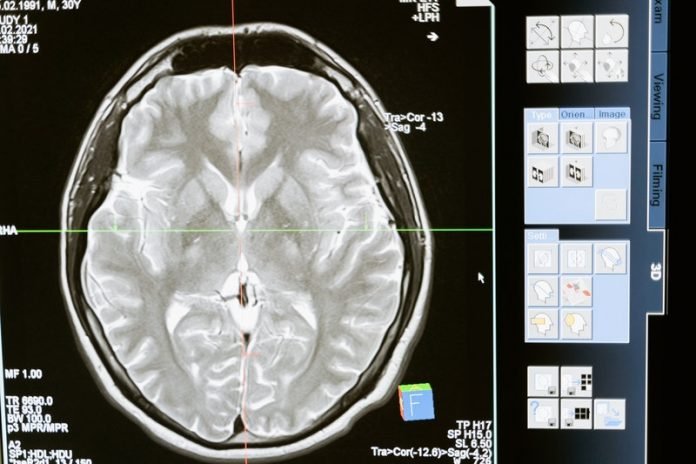
In a new study from the University of Oxford, researchers found a new test that could lead to an earlier and better diagnosis of Parkinson’s.
They used a highly-sensitive method called α-synuclein real-time quaking-induced conversion (αSyn-RT-QuIC) to observe the clumping of alpha-synuclein in the cerebrospinal fluid (CSF) taken from people with Parkinson’s.
The findings offer hope that a pioneering new clinical test could be developed to diagnose Parkinson’s correctly in its early stages.
Alpha-synuclein is a protein known to form sticky clumps, known as Lewy bodies, in the brain cells of people with Parkinson’s and some types of dementia.
These clumps are associated with the death of dopamine-producing nerve cells which causes the motor symptoms associated with Parkinson’s, including freezing, tremors and slowness of movement along with the ‘hidden’ symptoms such as anxiety and memory problems.
In a recent survey of more than 2,000 people with Parkinson’s carried out by Parkinson’s UK, more than a quarter (26 percent) reported they were misdiagnosed with a different condition before receiving the correct Parkinson’s diagnosis.
The signs and symptoms of Parkinson’s can overlap with other conditions such as multiple system atrophy (MSA) and essential tremor.
In the study, the team examined CSF samples from 74 people with Parkinson’s, 24 people with MSA, 45 people with sleep behavior disorder (RBD) and 55 healthy people.
The test showed 89% sensitivity for correctly identifying people with Parkinson’s and 96% specificity for correctly identifying people without the condition.
It was also able to distinguish people with MSA from people with Parkinson’s and importantly helped to identify people with RBD who had abnormal alpha-synuclein and later developed Parkinson’s.
The test also successfully distinguished between different clinical subtypes of Parkinson’s.
These promising findings show that the tool has the potential to help diagnose Parkinson’s accurately and early.
This study could be a significant development towards a future early diagnostic test for Parkinson’s. Such a test would enable the newly diagnosed to access vital treatment and support to manage their Parkinson’s symptoms sooner.
If you care about Parkinson’s disease, please read studies about new smell test for Parkinson’s, Alzheimer’s and COVID-19, and findings that these vitamins may protect you from Parkinson’s disease.
For more information about brain health, please see recent studies about how oral health may affect your heart, brain and risk of death, and results showing six ways to ‘reboot your brain’ after a hard year of COVID-19.
The study is published in Brain. One author of the study is Ilaria Poggiolini.
Copyright © 2021 Knowridge Science Report. All rights reserved.



